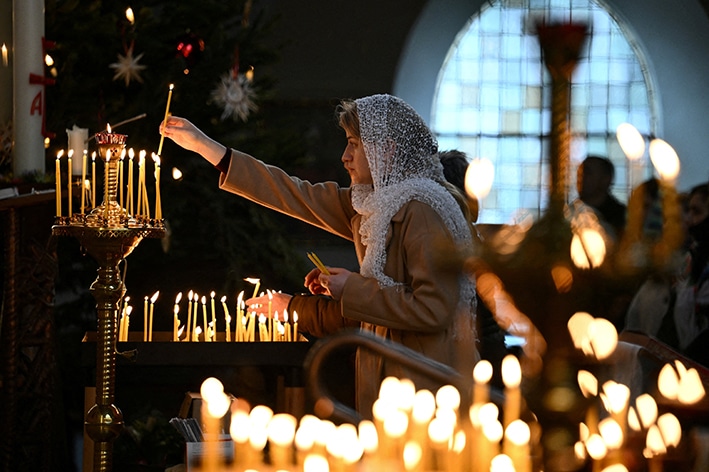
Carl von Clausewitz, the 19th-century Prussian military theorist whose masterpiece, On War, is still studied today, is not typically regarded as an intellectual resource for moral philosophers and moral theologians. That’s unfortunate.
For Clausewitz’s fundamental claim, that war is the extension of politics by other means, is in fact a moral claim. Why? Because if war is not politics-by-other-means—if the use of armed force is not directed to the restoration or establishment of the peace of freedom, justice and order — then war is simply brigandage and butchery.
I have been trying to make this point for over 35 years, since I first argued that, in addition to its classic ius ad bellum (war-decision) and ius in bello (war-conduct) principles, the Catholic just-war tradition, understood as a component of classic Catholic international relations theory, also contains an implicit ius ad pacem: an obligation to build a just peace in the aftermath of war. Clausewitz, I suspect, would agree—although being a Prussian he would have had rather different ideas than Augustine and Aquinas about the peace to be sought as the result of war.
Be that as it may, I would still contend that the ius ad pacem obligation links classic Catholic just-war principles on the use of proportionate and discriminate armed force to the Clausewitzian concept of war as a political, not simply military, exercise.
This idea of a ius ad pacem embedded in the just-war tradition is not prominent in contemporary Catholic just-war thinking, however. Why? In part, because many Catholic just-war thinkers accept the notion that the just-war tradition begins with a “presumption against war.” But that is to smuggle a pacifist premise into the just-war way of thinking and that false first move inexorably leads to the equally mistaken notion that the just-war principles are a kind of checklist that ethicists propose to statesmen (ie, tick all the boxes and you can go to war).
That turns the just-war tradition into a caricature of itself. For the just-war tradition and its principles are a framework for collaborative moral reflection between ethicists and public officials charged with responsibility for the common good. Those principles are not (to vary the imagery) a set of hoops religious leaders and moral theorists ask statesmen to jump through, and to limit just-war analysis to hoop-jumping tends to end the discussion before it gets to the peace to be sought.
This issue has become urgent again because of the Russian war on and in Ukraine. For something like the “presumption-against-war” seems to inform the argument, unhappily present in some Catholic circles, that the path toward peace in Ukraine will be traversed through a “dialogue” between Russia and Ukraine: a dialogue between politically and morally symmetrical parties, both of whom have morally defensible war-aims. That, however, is manifestly false.
According to no less an authority than Vladimir Putin, Russia’s war is a neocolonial war of conquest with a genocidal subtext: Ukraine is not a real nation; Ukraine has no legitimate claim to national sovereignty; Ukraine is run by Nazis intent on destroying Russia at the behest of the West. These are all lies, propagated internationally by relentless Russian propaganda and buttressed by the blasphemous statements of the Russian Orthodox Patriarch of Moscow and All ‘Rus, Kirill (a KGB operative in Geneva as a young priest). But they have had an effect in the West, not least in Italy.
A 4 July book discussion in Rome, sponsored by the Community of Sant’Egidio, seemed to fall into this trap of symmetry. I admire Sant’Egidio’s many efforts to serve the Roman poor, and I am grateful for the community’s superb work in creating a shrine to the modern martyrs at the Basilica of St Bartolomeo on Rome’s Tiber Island. But when speakers at the 4 July Sant’Egidio event harped about the complexities of history and the need to get beyond simple solutions to conflicts, questions arose about the intellectual depth being displayed, those tropes being shopworn cliches.
And when one speaker insisted that every war leaves the world worse off than it was before, I wondered if anyone present, remembering the nearby American military cemetery at Nettuno, thought that Italy was worse off after being liberated by Allied arms in World War II. Sant’Egidio’s concept of world politics, as displayed on 4 July, has little to do with classic Catholic international relations theory and the just-war tradition.
And that is worth noting, as Sant’Egidio seems to have assumed the leadership of the Ukrainian peace mission promoted by Pope Francis, leaving the Vatican Secretariat of State in a subordinate role.
George Weigel’s column ‘The Catholic Difference’ is syndicated by the Denver Catholic, the official publication of the Archdiocese of Denver.
